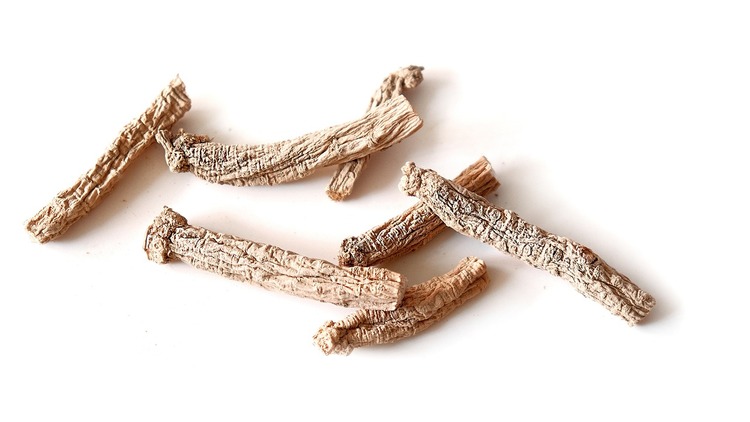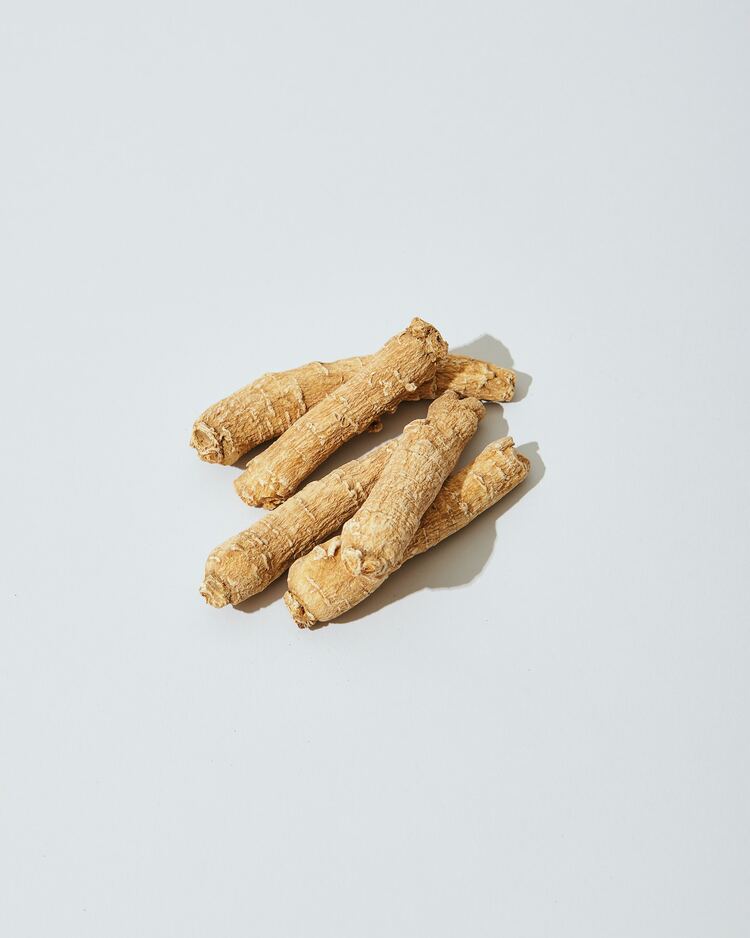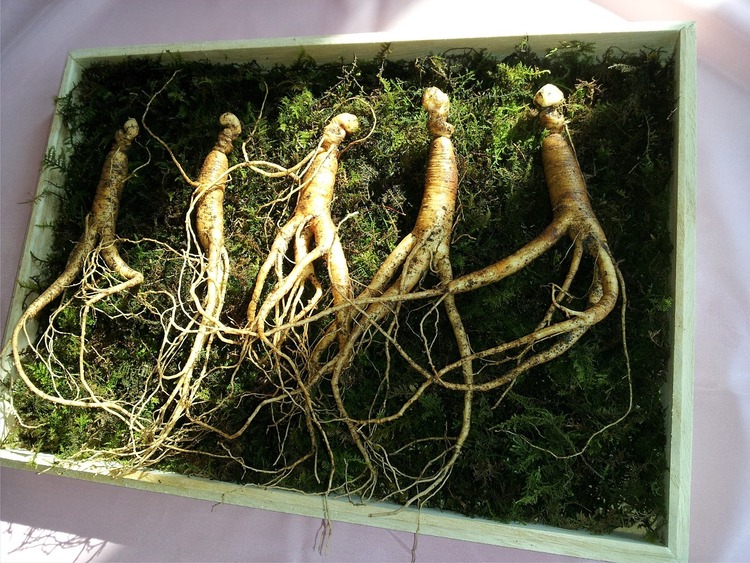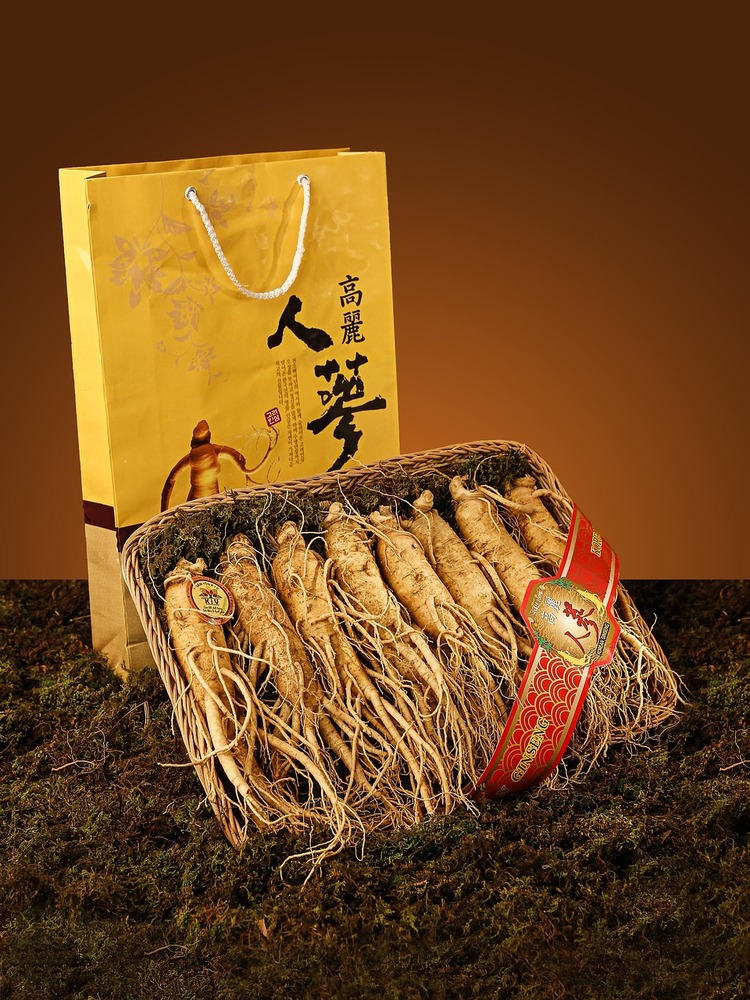What does ginseng tea taste like? Ginseng tea is made by steeping the root of the ginseng plant in hot water. The tea has a flavor that can be described as earthy, slightly bitter, and somewhat sweet.
Some people compare ginseng tea to green tea’s taste, while others say it has a more medicinal taste. The flavor can vary depending on the type of ginseng used and the brewing method. Some people prefer to add honey or other sweeteners to eliminate bitterness.
Keep reading if you’re looking for a new tea experience.
Please note: This article contains affiliate links, meaning I may earn a commission if you make a purchase by clicking a link. Of course, this comes at no extra cost to you and helps me keep offering readers solid information.

What Does Ginseng Tea Taste Like?
Ginseng tea is an herbal tea made from the roots of the ginseng plant, particularly the Panax ginseng species. Ginseng is a popular traditional herb in East Asian countries, including China, Korea, and Japan, where it has been used for centuries due to its potential health benefits.
Ginseng tea has a taste that can be described as earthy, bitter, and slightly sweet. The taste of ginseng tea can vary depending on the quality of the ginseng and how it was prepared.
One of the most prominent flavors in ginseng tea is bitterness. This bitterness is due to the natural compounds found in ginseng roots, which are responsible for many of the health benefits of ginseng. While some people find the bitterness of ginseng tea too strong, others enjoy the complex and rich flavor it adds to the tea.
In addition to bitterness, ginseng tea also has a slightly sweet taste. This sweetness is not overwhelming and is often balanced out by the bitterness of the tea. The sweetness of ginseng tea results from the natural sugars found in the ginseng root.
The earthy taste of ginseng tea is another characteristic that sets it apart from other teas. This taste results from the soil in which ginseng is grown and the unique flavor profile of the ginseng root. The earthiness of ginseng tea can be enhanced by brewing the tea with hot water for a longer time.
The Different Types of Ginseng and Their Flavors
American Ginseng
American ginseng (Panax quinquefolius) has a slightly bitter and earthy flavor with a slightly sweet aftertaste. The taste is often milder and less bitter compared to Asian ginseng.
This type of ginseng has distinctive leaves composed of five leaflets, hence the species name “quinquefolius,” which means “five-leaved.” The plant typically reaches a height of about 12-24 inches (30-60 cm). The roots are the most sought-after part.
Asian Ginseng
Asian ginseng (Panax ginseng) has a distinct and slightly bitter flavor, often described as earthy and slightly spicy. The bitterness is a characteristic feature of ginseng products and can be an acquired taste. Some people enjoy the unique flavor, while others might find it challenging.
This ginseng is a slow-growing plant with a short, stout stem and characteristic palm-shaped leaves, usually composed of three to five leaflets. The plant can reach about 1-2 feet (30-60 cm). Like American ginseng, the root is the most sought-after part of the plant.
Korean Red Ginseng
Korean Red Ginseng is created through a meticulous process of steaming and drying the ginseng root. This process gives the ginseng a distinct reddish-brown color and alters its chemical composition. The steaming and drying are believed to increase the concentration of specific bioactive compounds, particularly ginsenosides, associated with ginseng’s potential health benefits.
The steaming and drying process used in its preparation can impart a sweeter and less bitter taste than raw ginseng. The flavor is often complex, with earthy, slightly sweet, and somewhat spicy notes. This altered flavor profile can make Korean Red Ginseng more palatable for some individuals who find the raw bitterness of ginseng challenging.
White Ginseng
White Ginseng, also known as “raw ginseng” or “dried ginseng,” is prepared by cleaning and drying the ginseng root without undergoing the steaming process that Red Ginseng undergoes. This minimal processing helps retain some of the original properties of the ginseng root.
White Ginseng generally has a milder and more natural taste than Red Ginseng. The absence of the steaming process means that White Ginseng retains more of the root’s original flavor, which can be earthy, slightly bitter, and woody.
Siberian Ginseng
Siberian Ginseng, also known as Eleutherococcus senticosus or Eleuthero, is distinct from true ginseng species.
Siberian Ginseng is a woody shrub native to the forests of Siberia and other parts of East Asia. Despite its name, it is not closely related to true ginseng (Panax species) but shares similar adaptogenic properties.
Its neutral taste makes it less bitter and earthy than true ginseng.

How to Prepare Ginseng Tea
You can easily make it home if you want to try ginseng tea. Here’s how to prepare it:
Using Ginseng Roots
- Start by washing the ginseng root thoroughly to remove any dirt or debris.
- Cut the root into small pieces about the size of a dime.
- Add the ginseng pieces to a teapot or a cup. Use 2-4 grams of ginseng per cup of water.
- Pour boiling water over the ginseng and let it steep for 5-10 minutes.
- Remove the ginseng pieces and enjoy your tea.
Adding Sweeteners
If you prefer your tea sweet, you can add a sweetener to your tea. Here’s how:
- After steeping the ginseng, add a teaspoon of honey to your tea.
- Stir the honey until it dissolves.
- Taste your tea and add more honey if needed.
Adding Lemon or Ginger
If you want to add extra flavor to your ginseng tea, add lemon or ginger. Here’s how:
- After steeping the ginseng, add a slice of lemon or ginger to your tea.
- Let it steep for an additional 2-3 minutes.
- Remove the lemon or ginger, and enjoy your tea.
Remember, you can adjust the amount of ginseng, sweetener, and flavorings to your liking. Start with a small amount and add more as needed. Enjoy your homemade tea!
Ginseng Tea Blends
Here are some ginseng tea blend ideas that you might enjoy:
Ginseng Green Tea Blend
A blend of ginseng and green tea creates a refreshing and antioxidant-rich beverage. The earthy ginseng notes can complement green tea’s grassy and slightly astringent taste.
Ginseng Herbal Citrus Blend
Combine ginseng with citrusy herbs like lemongrass, orange peel, and lemon verbena for a zesty and refreshing blend. The brightness of citrus balances the earthy undertones of ginseng.
Ginseng Mint Blend
Whether spearmint or peppermint, mint leaves can provide a cool and refreshing element to ginseng tea. The minty flavor pairs well with ginseng’s natural earthiness.
Ginseng Chamomile Blend
This calming blend combines ginseng’s adaptogenic qualities with chamomile’s soothing properties. It’s an excellent choice for relaxation and stress relief.
Ginseng Spiced Chai Blend
Create a warm and comforting blend by mixing ginseng with chai spices like cinnamon, cardamom, cloves, and ginger. The robust flavors of the spices complement ginseng’s profile.
Ginseng Berry Blend
Mix ginseng with dried berries like strawberries, blueberries, or raspberries for a fruity and slightly tangy tea. The sweet and tart flavors balance ginseng’s earthiness.
Ginseng Honey Blend
Infuse ginseng tea with a touch of honey for natural sweetness. The honey complements ginseng’s flavor while adding its soothing qualities.
Ginseng Rooibos Blend
Rooibos, a caffeine-free herbal tea, can be combined with ginseng for a nutty and slightly sweet blend. Rooibos also adds a reddish color to the tea.
Ginseng Jasmine Blend
Pair ginseng with jasmine blossoms to create a floral and aromatic tea. The light, fragrant notes of jasmine complement ginseng’s more earthy tones.
Ginseng Lemon Ginger Blend
Add a zing to your ginseng tea by incorporating lemon and ginger. The combination offers a refreshing and invigorating drink.

Health Benefits of Ginseng Tea
Ginseng tea has been used for centuries in traditional medicine for its various health benefits. Here are some of the benefits you can expect from drinking ginseng tea:
Boosting Energy Levels
Ginseng tea is known for its ability to increase energy levels. It contains compounds that help improve blood circulation and oxygen delivery to your body’s cells, which can help reduce fatigue and improve overall energy levels.
Regulating Blood Sugar Levels
The tea has been shown to help regulate blood sugar levels, making it a great option for those with type 2 diabetes. It can help improve insulin sensitivity and reduce insulin resistance, which can help keep blood sugar levels stable.
Enhancing Cognitive Function
Ginseng tea is also known for its ability to enhance cognitive function. It contains compounds that can help improve concentration, memory, and overall brain function. This makes it a great option for those who need to stay focused and alert throughout the day.
Strengthening the Immune System
This tea has immune-boosting properties that can help strengthen your body’s natural defenses against illness and disease. It contains compounds that can help stimulate the production of white blood cells, which are responsible for fighting off infections and viruses.
Adaptogens
Ginseng is an adaptogen, a natural substance that is thought to enhance the body’s ability to adapt to physical and mental stress.
Ginseng is thought to influence the adrenal glands, helping to modulate the secretion of stress hormones like cortisol. This modulation aims to prevent the overproduction of cortisol during times of stress, potentially reducing the adverse effects of chronic stress.
It’s important to note that ginseng tea is not a magic cure-all. While it may offer some health benefits, it’s not a substitute for medical treatment or a healthy lifestyle. If you’re considering trying ginseng tea, talk to your doctor first to make sure it’s safe for you.
Ginseng Tea Vs. Other Teas
When it comes to herbal tea, there are many different types. Each tea has its particular taste and benefits. Ginseng tea is no exception. This section will compare ginseng tea to other teas, such as green and herbal teas.
Ginseng Vs. Green Tea
Green tea is a popular tea that is made from the leaves of the Camellia sinensis plant. It is known for its high levels of antioxidants and caffeine. Ginseng tea, on the other hand, is made from the root of the ginseng plant and has been used for centuries in traditional medicine.
Green tea has a slightly bitter and earthy taste, while ginseng tea has a sweet and slightly bitter taste. Ginseng tea is also less bitter than green tea, making it a good choice for those who dislike it.
Ginseng Vs. Herbal Teas
Herbal teas are made from a variety of herbs and plants and are known for their unique flavors and health benefits. Some popular herbal teas include chamomile, peppermint, and lavender.
Ginseng tea has a more complex and unique flavor than herbal tea. It has a sweet and slightly bitter taste with a hint of earthiness. On the other hand, herbal teas have a more straightforward taste and are often used for their calming and relaxing properties.
Buying Recommendations
When buying ginseng products, several factors must be considered to ensure you’re getting a high-quality and effective product.
Look for reputable brands that source their ginseng from reliable and reputable suppliers.
Consider whether you want raw ginseng, white ginseng, or red ginseng. Each form undergoes different processing methods that can affect flavor and potential health benefits.
Check the ingredient list for unnecessary fillers, additives, or artificial ingredients. Choose products with minimal additional components.
If you are considering buying online, please take into consideration the following recommendations:
Prince of Peace 100% American Wisconsin Ginseng Root Tea

Prince of Peace Korean Ginseng Instant Tea

FGO Organic Honey Ginseng Green Tea

Nutra Tea – Ginger & Ginseng Tea

Frequently Asked Questions
How can I enhance the taste of ginseng tea?
If you find the taste of ginseng tea too bitter or earthy, you can add a natural sweetener, such as honey or stevia, to enhance the flavor. You can also add a slice of lemon or a sprig of mint to add a refreshing twist to the taste.
What are the benefits of drinking ginseng tea?
Ginseng tea is believed to have several health benefits, including boosting the immune system, improving brain function, reducing stress and anxiety, and increasing energy levels. It may also help lower blood sugar levels and improve heart health.
What are the different types of ginseng tea?
There are several types of ginseng tea, including Korean ginseng tea, American ginseng tea, and Siberian ginseng tea. Each type has its unique flavor and health benefits.
How often should I drink ginseng tea?
Drinking ginseng tea in moderation is recommended, as excessive consumption may lead to side effects. Drinking one to two cups of ginseng tea per day is generally safe and may provide health benefits.
What are the side effects of drinking ginseng tea?
While ginseng tea is generally safe, excessive consumption may lead to side effects such as insomnia, headaches, and digestive issues. It may also interact with certain medications, so it’s essential to consult with your healthcare provider before consuming ginseng tea regularly.
Does ginseng tea have caffeine?
Ginseng tea is naturally caffeine-free, making it an excellent alternative to coffee or caffeinated tea. However, some ginseng tea blends may contain added caffeine, so checking the label before consuming is essential.

I hope you have enjoyed the article!
To you, what does ginseng tea taste like?
More About Herbal Tea
What Does Peppermint Tea Taste Like?
What Does Mint Tea Taste Like?
What Does Ginger Tea Taste Like?
What Does Lemon Balm Tea Taste Like?
What Does Chamomile Tea Taste Like?
What Does Mugwort Tea Taste Like?
What Does Licorice Root Tea Taste Like?